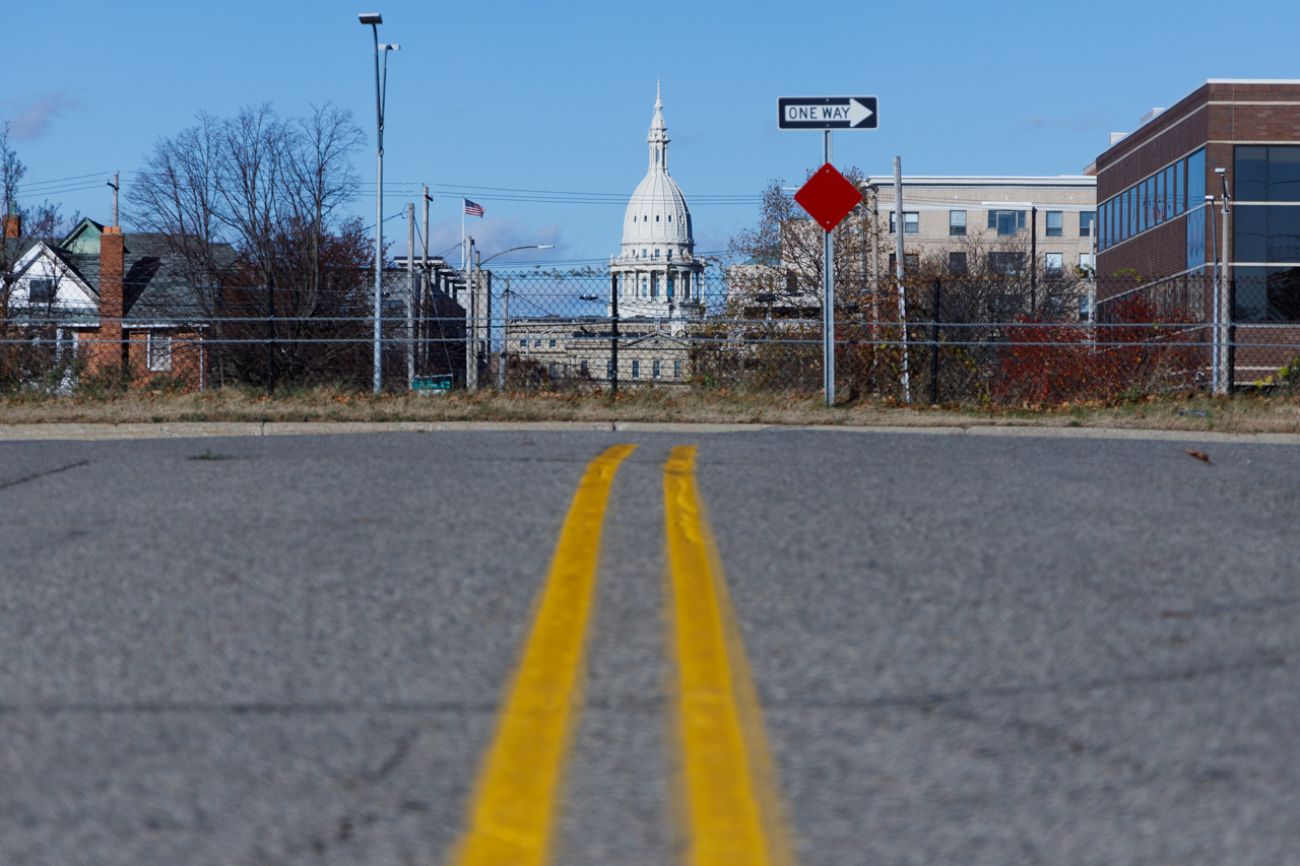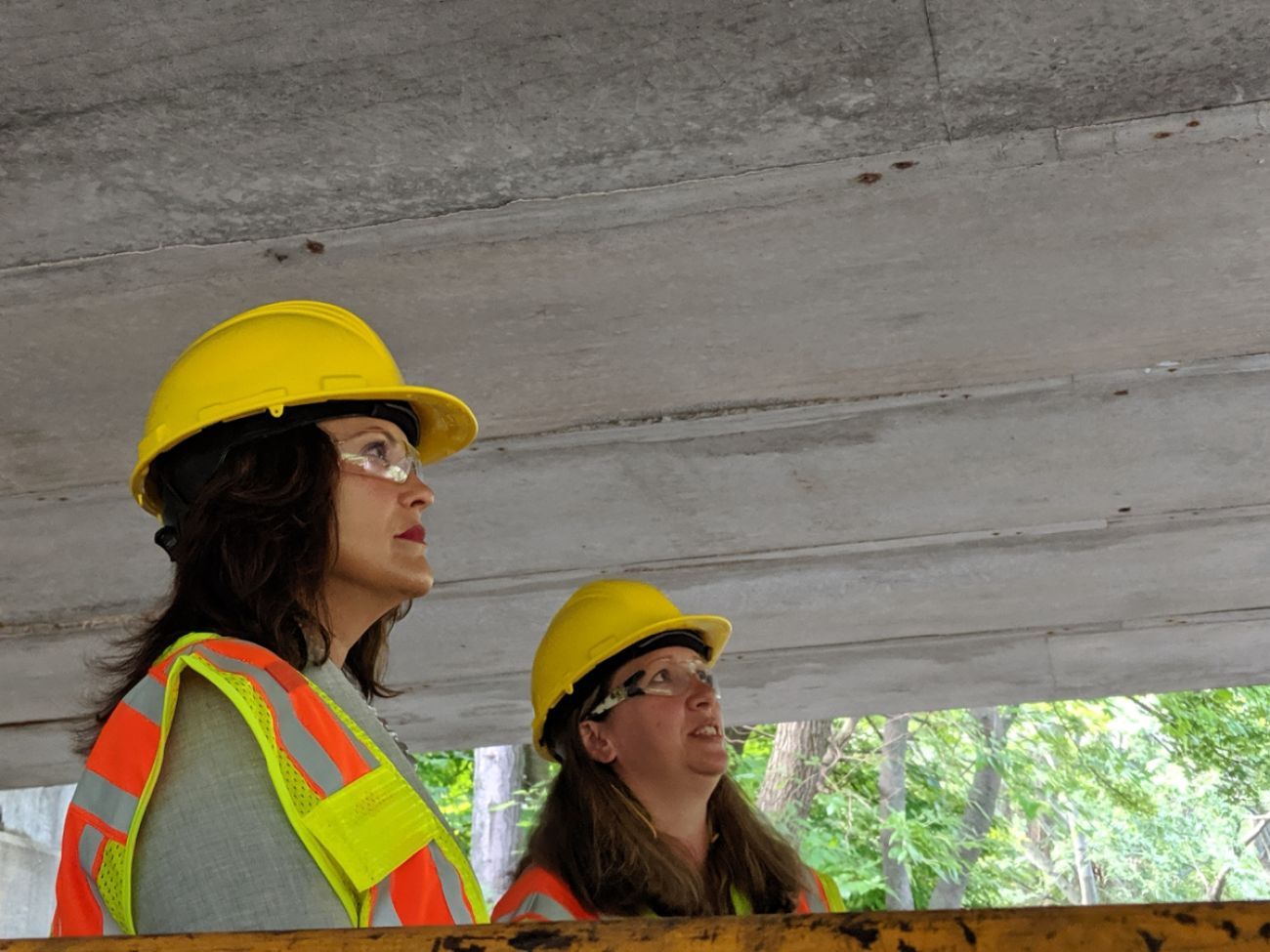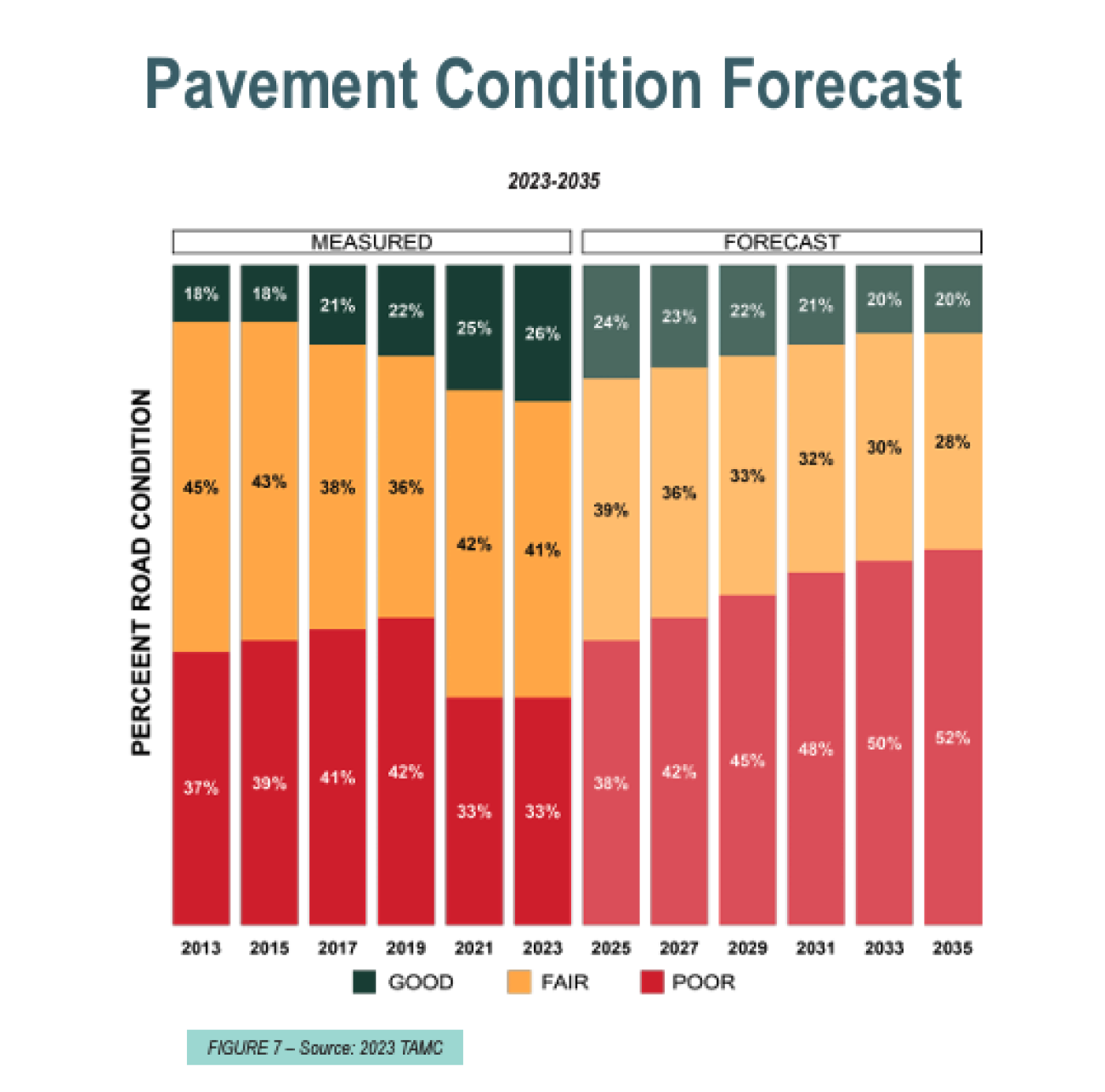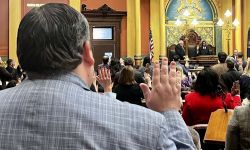Gretchen Whitmer still seeking road funding ‘solution.’ Only GOP has a plan

- Gov. Gretchen Whitmer still seeking ‘long-term funding solution’ but losing allies in Michigan House, which Republicans will take over next year
- Democrats are criticizing a new House Republican road funding plan but have not proposed an alternative
- Whitmer secured $3.5 billion in bonding for roads in 2020 after lawmakers rejected her proposal for steep fuel tax hikes
LANSING — Six years after she won election on a promise to "fix the damn roads," Gov. Gretchen Whitmer is running out of time to finalize a plan before fellow Democrats lose control of the state House at year’s end.
With roughly a month left in the lame-duck session, Whitmer remains convinced there is a “need for a long-term funding solution,” and “will work with anyone who is serious about getting things done,” spokesperson Stacey Larouche told Bridge.
But it's not yet clear whether legislative Democrats will work with the governor, who in 2020 unilaterally adopted a $3.5 bonding plan for highways but has been unable to negotiate a more expansive deal with lawmakers.
Both Whitmer and House Speaker Joe Tate, D-Detroit, have been noncommittal about the prospect of crafting road funding legislation before year's end. And so far, only Republicans have proposed a concrete plan.
“I have a plan and the Democrats don't, and so they could just adopt our plan, and we could work together,” Republican Speaker-Elect Matt Hall told reporters this week.
Related:
- In Michigan, 'fixing the damn roads' got really darned expensive
- Michigan roads a little better, but still a D and will get worse, report finds
- Gov. Gretchen Whitmer open to charging tolls on Michigan roads
But Hall’s plan is not likely to go anywhere soon because it would redirect funding allocated to schools and jeopardize the governor’s signature economic development incentive program, drawing criticism from some Democrats.
The lame-duck session is set to resume Dec. 3 and leaves Democrats with only a few weeks to propose and pass a solution on their own, while next year negotiations would likely have to involve a new 58-52 Republican House majority.
Few details have emerged on what will ultimately make Democrats’ lame-duck agenda.

An ongoing problem
Insufficient investment in state and local roads have plagued Michigan for decades, creating a long backlog in road and bridge repairs.
In 2019, when Whitmer took office, 61% of state roads and 49% of local roads were in good or fair condition, according to the Michigan Transportation Asset Management Council.
A 45-cent gas tax increase was the marquee proposal of Whitmer’s first year, but Republican majorities in both chambers of the Legislature ensured that proposal was dead on arrival, and some members of her own party called it unrealistic.
The year after, Whitmer announced in her State of the State address she would go it alone and unilaterally issue $3.5 billion in state bonds to fund long-deferred maintenance modernization on state roads, primarily highways.
After years of construction, road conditions have only improved slightly. About 68% of state roads and 53% of local roads are now in good or fair condition, but the additional funding did not help county or municipally-maintained roads.
Increases in construction costs have also shrunk progress. The cost of paving one lane-mile is up nearly 40% since 2019, thanks to a combination of inflation, worker shortages and more expensive reconstruction repairs. While spending since 2019 has nearly doubled, according to a recent Citizens Research Council study, the cost of repairing one bridge is up 62% since 2015.
Now that funding is running out — though taxpayers will be paying off the debt and interest for decades to come — and there is no announced plan for what comes next.
A path forward
Policymakers have three approaches: Raise revenue, as Whitmer tried and failed to do; issue state debt, as Whitmer ultimately did in 2020, or reallocate money from elsewhere in the state budget to boost road dollars.
While lawmakers commissioned studies for potential toll roads, and Democrats last year considered funding a road usage charge pilot program, those discussions have not resulted in any formal policy plans.
Incoming House GOP leaders are largely focused on reallocating existing resources to roads.
Rep. Donni Steele, currently the top-ranking Republican on the House transportation budget committee, has pledged a “revenue neutral” approach to spend more on roads without raising additional money.
Republicans want to earmark nearly all money generated by the Corporate Income Tax for roads, which would eliminate funding for Whitmer’s Strategic Outreach and Attraction Reserve business incentive program.
The plan Hall recently unveiled would also exempt fuel purchases from the state sales tax but increase fuel taxes by a similar amount, ensuring all taxes paid on fuel purchases would help fund road repairs.
“If you're charged for it at the pump, it should go to fixing the roads,” Hall said Monday.
That has advocates for Michigan’s public schools nervous, however, because under the Michigan Constitution, about 73% of sales tax revenue must go to the school aid fund.
Republicans have emphasized that schools wouldn’t lose any funding. “If there's a hole in school funding, I'll vote no on my own bill,” plan co-author Rep. Tom Kunse, R-Clare, said at a press conference. “That’s not going to happen.”
But Republicans haven’t specified who or what would lose in the money shuffle, and that hasn’t satisfied education advocates like Jen Smith of the Michigan Association of School Boards.
“They're going to have to find that money somewhere,” Smith said of the GOP plan
Smith’s group is part of a coalition of public education organizations with “deep concerns” that the GOP proposal lacks a “clear and specific plan to replace the more than $650 million (that the sales tax on gas) generates annually for public schools, about $480 per student,” according to a memo.

Michigan Alliance for Student Opportunity Executive Director Peter Spadafore said in a statement that “Michigan’s students cannot afford a solution that simply shuffles the deck and takes resources away from public education.”
Tate, the outgoing state House Speaker, said in a statement he’s glad Hall is “thinking about road and transportation funding” and “it is a priority for me to keep that dialogue open.” But he refrained from saying the issue is a priority for House Democrats during their final weeks in the majority.
Rep. Nate Shannon, the outgoing chair of the House transportation committee, told Bridge he wasn’t aware of any legislation coming his way to address road funding.
Whitmer's predecessor, former Gov. Rick Snyder, also struggled to boost road funding during his tenure. After voters rejected a 2015 ballot measure proposed by lawmakers, Snyder convinced a Republican-led Legislature to raise fuel taxes and registration fees by a projected $600 million a year. That law also redirected another $600 million a year in general fund revenue towards roads.
Since Whitmer’s 2019 plan to raise fuel taxes again failed, Democratic leaders have largely remained silent about long-term solutions while trumpeting extra one-time funding in state budgets.
Whitmer has maintained she wants to see a long-term fix reach her desk, but has not offered an alternative approach.
Outside groups have mulled things like use taxes, where drivers pay fees based on their annual mileage on Michigan roads, or tolling major highways, as other states do. None have particularly appealed to policymakers.
Locals facing a crunch
The percentage of Michigan’s county roads in “good” condition is slipping, said Michigan County Roads Association CEO Denise Donohue, who predicted that without a change “we could have more roads sliding backwards into ‘poor.’”
The road funding law Snyder signed nine years ago was not enough to sustain pavement quality into the future, she said.
“We saw significant gains in the miles of roads improved for two, three years, then it just seemed to flatten out near the pandemic, and it really hasn't taken off since,” Donohue said.
Counties road agencies get most of their funding from the state, but inflation has taken a big bite and flagging gas consumption from motorists has increased the pain. The last few years, Donohue said, agencies have been “treading water,” and “it’s been a decade since we’ve had to tighten the belt,” but that reality is growing closer.
County roads officials are more interested in seeing a mileage-based use studied in Michigan, Donohue said, arguing “that is the future” because the “erosion of gas tax is going to continue” with more electric and fuel-efficient vehicles.
Regardless, she and other road-related groups have been encouraged by the renewed discussions on road funding. Whether it will come up in lame duck, though, isn’t yet clear.
See what new members are saying about why they donated to Bridge Michigan:
- “In order for this information to be accurate and unbiased it must be underwritten by its readers, not by special interests.” - Larry S.
- “Not many other media sources report on the topics Bridge does.” - Susan B.
- “Your journalism is outstanding and rare these days.” - Mark S.
If you want to ensure the future of nonpartisan, nonprofit Michigan journalism, please become a member today. You, too, will be asked why you donated and maybe we'll feature your quote next time!




